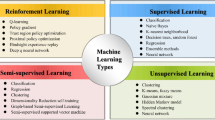Abstract
The concept of smart cities, which integrates advanced technologies into urban environments, holds the potential to significantly enhance the quality of life for residents by promoting efficiency, connectivity, and sustainability. By leveraging technologies such as artificial intelligence (AI), smart cities can provide better public services, improve infrastructure management, and foster innovative solutions to urban challenges. The focus should be on empowering citizens to retain control over the technologies that shape their surroundings, ensuring that technological advancements align with community values like transparency, solidarity, and equity. As cities evolve to become smarter, it is essential to maintain a balance between automation and human oversight to address complex public decision-making effectively. Emphasizing the well-being of residents, smart city initiatives should prioritize environmental sustainability, equitable resource distribution, and social inclusion. This approach can transform urban landscapes into spaces where technology serves as a tool for enhancing community life and promoting democratic participation, ultimately leading to more harmonious and resilient urban environments. By focusing on these positive aspects, smart cities can harness the transformative potential of AI and other technologies to create more inclusive, efficient, and vibrant urban spaces that truly benefit all citizens.


Similar content being viewed by others
Data Availability
Not applicable.
References
Illich I. Rebirth of Epimethean Man, en Deschooling Society. New York: Harper & Row; 1972. pp. 151–67.
Robert J. Una visión filosófica de la tecnología. 3er CuaDerno de Humanidades. Cuernavaca: Universidad La Salle; 1998.
McCulloch WS, Pitts W. (1943). A Logical Calculus of the Ideas Immanent in Nervous Activity. Bulletin of Mathematical Biophysics, 5: 115–133, 1943.
Turing A. Computing machinery and intelligence. Mind. 1950;236:433–60. https://doi.org/10.1093/mind/LIX.236.433.
Picon A. (2018). Urban infrastructure, imagination and politics: from the networked metropolis to the smart city. International Journal of Urban and Regional Research, Wiley Blackwell, vol. 42(2), pages 263–275, March. https://doi.org/10.1111/1468-2427.12527
Greenfield A. Radical technologies: the design of Everyday Life. London: Verso Books; 2018.
Harrison C, Eckman B, Hamilton R, Hartswick P, Kalagnanam J, Paraszczak J, Williams P. Foundations for smarter cities. IBM J Res Dev. 2010;54(4):1–16. https://doi.org/10.1147/JRD.2010.2048257. July-Aug.
Almeida V, Doneda DCM, Da Costa EM. (2018). Humane Smart Cities: The Need for Governance. IEEE Internet Computing, 22, 91–95.; Gohari S, Ahlers D, F. Nielsen B, Junker E. (2020). The Governance Approach of Smart City Initiatives. Evidence from Trondheim, Bergen, and Bodø. Infrastructures 5, no. 4: 31. https://doi.org/10.3390/infrastructures5040031
Vanolo A. Smartmentality: the smart city as a disciplinary strategy. Urban Stud. 2014;51(5):883–98.
Pentland A, Lipton A, Hardjono T. Building the New Economy: data as Capital. Amsterdam: Amsterdam University; 2021.
Ibid.
Ibidem.
Ibid. P.36.
Harari YN. 21 lecciones para El Siglo XXI. Ciudad de México: Debate; 2018.
Ibid. P.130.
García-Canclini N. Ciudadanos reemplazados por algoritmos. Bielefeld: Bielefeld University; 2019.
Ibid. P. 221.
Haraway D. A Cyborg Manifesto: Science, Technology, and Socialist-Feminism in the late Twentieth Century. Simians, cyborgs and women: the Reinvention of Nature. New York: Routledge; 1991. pp. 149–81.
Dignum V. (2018). Ethics in artificial intelligence: introduction to the special issue. Ethics Information Technology 20, 1–3. https://doi.org/10.1007/s10676-018-9450-z; Ariely, Dan. (2010). Predictably irrational: the hidden forces that shape our decisions. New York: Harper Perennial.
Villani C, Bonnet Y, Rondepierre B. For a meaningful artificial intelligence: towards a French and European strategy. Conseil National du Numérique; 2018.
European Commission, Directorate-General for Communications Networks. Content and technology, Ethics guidelines for trustworthy AI. Publications Office; 2019. https://data.europa.eu/doi/10.2759/346720. P.18.
Hollands R. Will the real Smart City stand up? City. 2008;12(3):302–20.
Deakin M, editor. Smart cities: governing, modelling and analysing the transition. 1st ed. London: Routledge; 2013.
Harvey D. The limits to capital. Oxford: Blackwell; 1982.
Brossat I. Airbnb, La Ciudad Uberizada. Pamplona: Katakrak; 2018.
Illich I. Apéndice: La Necesidad De Un Techo común (El control social de la tecnología), w/ V. Borremans, in Iván Illich. Obras reunidas I. México: FCE; 2006.
Castells M, Hall P. Technologies of the World. London: Routledge; 1994.
Ratti C, Claudel M. The City of tomorrow: sensors, networks, hackers, and the future of Urban Life (The Future Series). Cambridge, MA: MIT Press.
Kitchin R, Lauriault T, McArdle G. Knowing and governing cities through urban indicators, city benchmarking and real-time dashboards. Reg Stud Reg Sci. 2015;2:6–28. https://doi.org/10.1080/21681376.2014.983149.
Eubanks V. (2018) Automating Inequality: How High-Tech Tools Profile, Police and Punish the Poor. New York: St. Martin’s Press; Umoya, S. (2018). Algorithms of Oppression. How Search Engines Reinforce Racism. New York: NYU Press.
Funding
Consejo Nacional de Ciencia y Tecnología Award No. 320285.
Author information
Authors and Affiliations
Contributions
A.V.-A. Designed research; A.V.-A., D.A.-V., I.R.I., and G.R.T. performed research; I.R.I. and G.R.T. analyzed data; A.V.-A. wrote the paper.
Corresponding author
Ethics declarations
Informed Consent
Not applicable.
Research Involving Human and /or Animals
Not applicable.
Competing Interests
On behalf of all authors, the corresponding author states that there is no conflict of interest.
Additional information
Publisher’s Note
Springer Nature remains neutral with regard to jurisdictional claims in published maps and institutional affiliations.
This article is part of the topical collection “Advanced Computing: Innovations and Applications” guest edited by Sanjay Madria, Parteek Bhatia, Priyanka Sharma and Deepak Garg.
Rights and permissions
Springer Nature or its licensor (e.g. a society or other partner) holds exclusive rights to this article under a publishing agreement with the author(s) or other rightsholder(s); author self-archiving of the accepted manuscript version of this article is solely governed by the terms of such publishing agreement and applicable law.
About this article
Cite this article
Valenzuela-Aguilera, A., Romero-Tecua, G., Aguilar-Velázquez, D. et al. Smart Cities: Aligning Tech Efficiency with Social Justice. SN COMPUT. SCI. 5, 997 (2024). https://doi.org/10.1007/s42979-024-03354-7
Received:
Accepted:
Published:
DOI: https://doi.org/10.1007/s42979-024-03354-7




